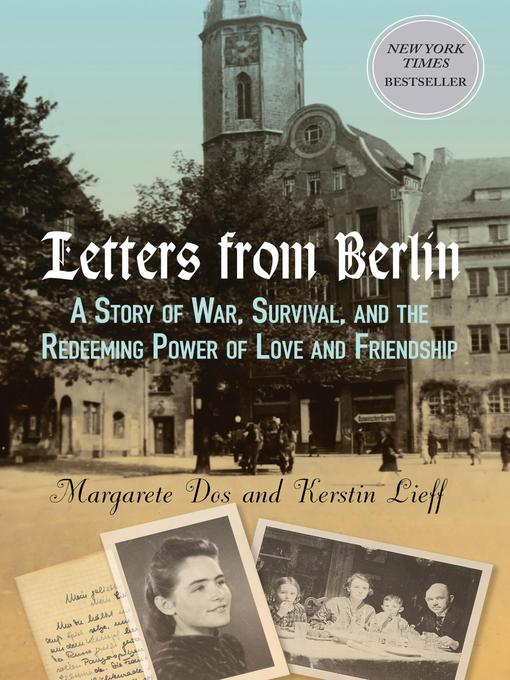
Letters From Berlin
A Story of War, Survival, and the Redeeming Power of Love and Friendship
کتاب های مرتبط
- اطلاعات
- نقد و بررسی
- دیدگاه کاربران
نقد و بررسی

July 23, 2012
Dos’s early childhood in Berlin wasn’t easy—she was abused by her violent stepfather after her own father’s death—and her adolescence and young adulthood coincided with the brutal rise of the Nazi regime and postwar Soviet occupation. A former medical student, she served during the war as a Red Cross nurse amid allied bombings that left homes and lives in rubble. Transcribed and translated from Lieff’s interviews with her mother, Dos’s story mixes the ordinary life of high school athletics with extraordinary tragedy faced by Dos and her “Mutti.” In the war’s aftermath, Dos and her mother attempted to escape from ravaged Berlin. But the train they thought was bound for Sweden took them instead to the Soviet gulag. A treasure trove of photographs depicts Dos’s innocent prewar family life while giving insight into the overwhelmed German citizenry during the rush of Hitler’s rise. This history of an average but cheerful and optimistic teenager and her resourceful mother spells out the horrors of war but balances them with hope. Illus., maps.

September 15, 2012
A daughter turns her German mother's harrowing memories of living through the liberation of Berlin into a moving insider's account of the time. Lieff assumed that her mother, Margarete Dos, who was a young teenager in Berlin during World War II and who died in 2005 at age 81, knew about the gas chambers and other horrors executed by Hitler's regime. Her mother had never wanted to talk about the war and afterward, when Dos and her mother ended up in a Russian gulag for two years. However, finally hearing her mother's memories over the three years they spent systematically recording them at the end of her life, then finding love letters to a German soldier her daughter had never heard of, threw tantalizing ambiguities over her mother's life and provoked new questions for Lieff. The author does an admirable job of reconstructing her mother's extraordinary journey, allowing the frankness of detail to reflect the integrity of her mother's voice. Indeed, the young Dos went from an Edenic childhood in Swinemunde, with doting parents and a younger brother, to Berlin after her father's death and the remarriage of her mother. Dos claimed her family never joined the Nazi Party and were always held in some suspicion; nonetheless, she and others were swept up in the general euphoria promised by the Nazis in the wake of hyperinflation and unemployment, until it all began to "feel wrong and frightening." Dos attempted to study medicine and work as a nurse, even as she and her mother navigated bombings, food rationing and the liberation of Berlin by the Russians. Fleeing their savagery, they tried to make it to Sweden but were imprisoned for two brutal years in the Russian gulag. A truly surprising denouement caps a well-told postwar account.
COPYRIGHT(2012) Kirkus Reviews, ALL RIGHTS RESERVED.

September 15, 2012
Lieff weaves her mother's letters and reminiscences into a compelling portrait of a young German girl's WWIIera experiences. As a noncombatant, Margarete Dos witnessed Hitler's rise to power and weathered the brutality of life on the homefront as she moved from adolescence to young womanhood. Her extraordinary journey did not end with Germany's surrender, for as she and her mother attempted to immigrate to Sweden at the conclusion of the war, the train they boarded was diverted to Russia, where they spent several years as inmates in a Russian gulag. Since Dos shares her life and loves via intimate interviews with her daughter, an emotionally sympathetic portrait emerges. Though one might validly wonder whether Margarete's claim that she didn't learn about what happened to the Jews in Germany until after the war was over is entirely true, her eyewitness account, that of a teenager enduring the horrors and the uncertainty of war, can't be discounted.(Reprinted with permission of Booklist, copyright 2012, American Library Association.)

























دیدگاه کاربران